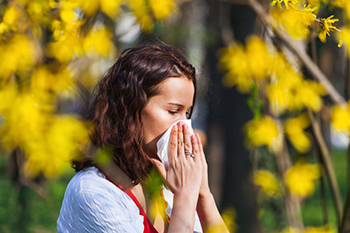3 Tips That Can Help You Decrease Your Risk Of Spring Allergies
 With the long months of Winter coming to an end – we are all ready for it to be spring. But the rising temperatures also come with an increase of pollen and with that comes the negative side effects of spring allergies. You have probably found yourself, a victim, to spring allergies and the annoying side effects. A runny nose, and the dreaded red, itchy, watery eyes. Here are 3 tips you can use to decrease your risk of getting spring allergies this year.
With the long months of Winter coming to an end – we are all ready for it to be spring. But the rising temperatures also come with an increase of pollen and with that comes the negative side effects of spring allergies. You have probably found yourself, a victim, to spring allergies and the annoying side effects. A runny nose, and the dreaded red, itchy, watery eyes. Here are 3 tips you can use to decrease your risk of getting spring allergies this year.
Avoid Allergens
When the pollen level in your area is high it is important to avoid allergens as much as possible. A good way to reduce the amount of pollen you are encountering is by keeping your windows shut during high pollen periods and use a fan or air conditioning as an alternative in your home as well as your car. If you are using an air conditioning unit it is also important to make sure that you are replacing and cleaning the filters frequently.
Wear Sunglasses
When spring rolls around you can’t avoid going outside and facing the pollen forever, so when you do go outside it is important to keep your eyes protected. By wearing sunglasses you can shield your eyes and decrease the risk of getting pollen directly into your eyes causing irritation.
Wash Your Hands
Washing your hands frequently is important to do for a number of reasons but becomes increasingly important as the pollen levels increase. If you come in contact with pollen it is easy to forget to wash your hands – also making it easier to rub your eyes and unknowingly introduce it to your body. This will cause them to become irritated and leave you dealing with the annoying side effects of spring allergies.




